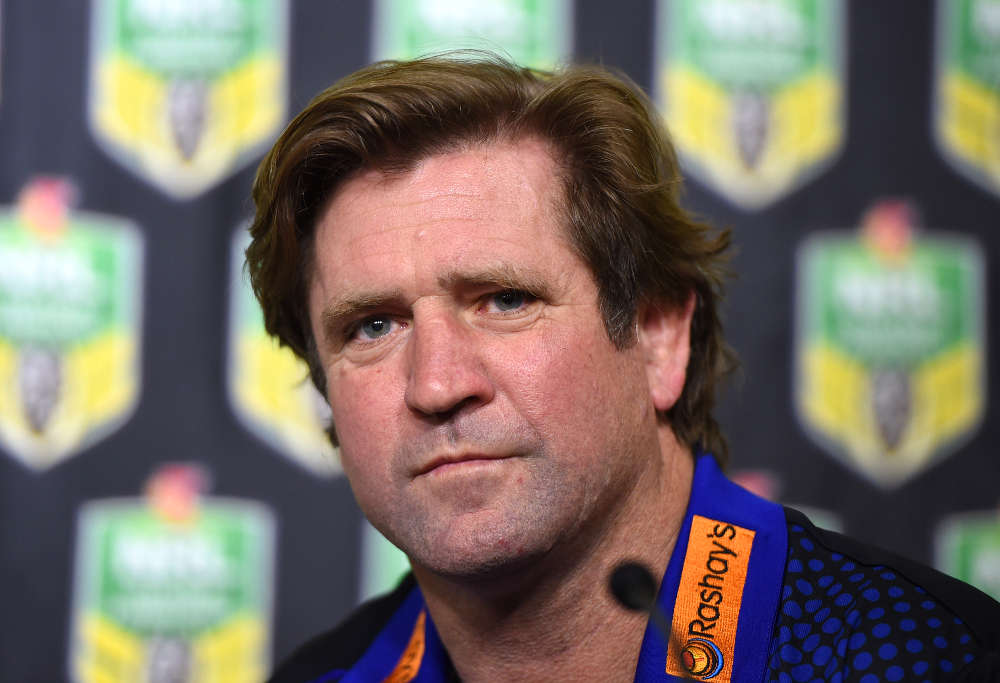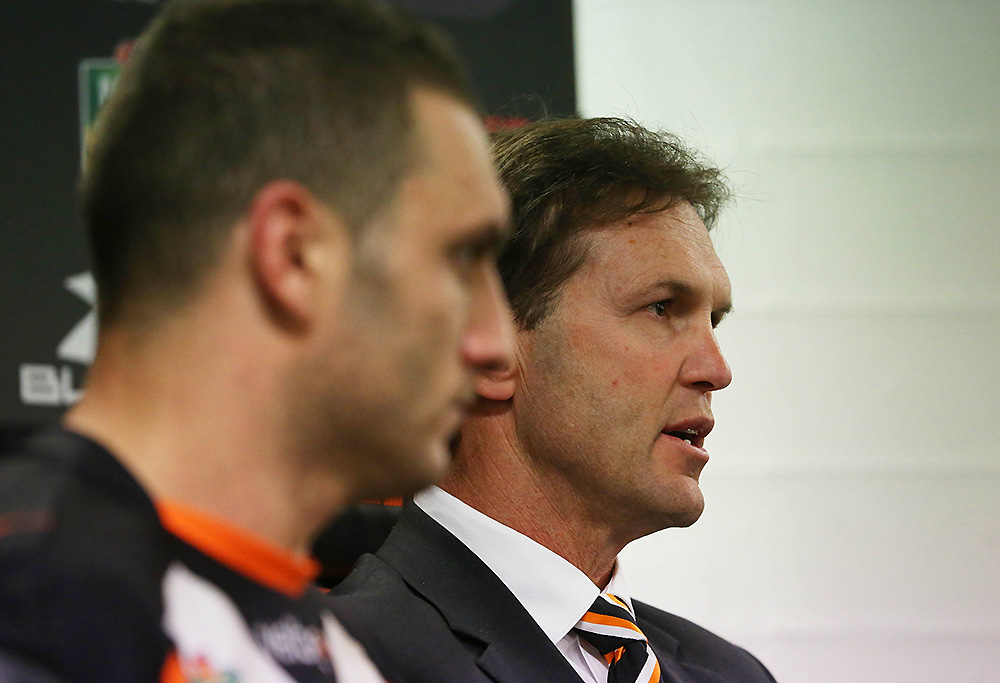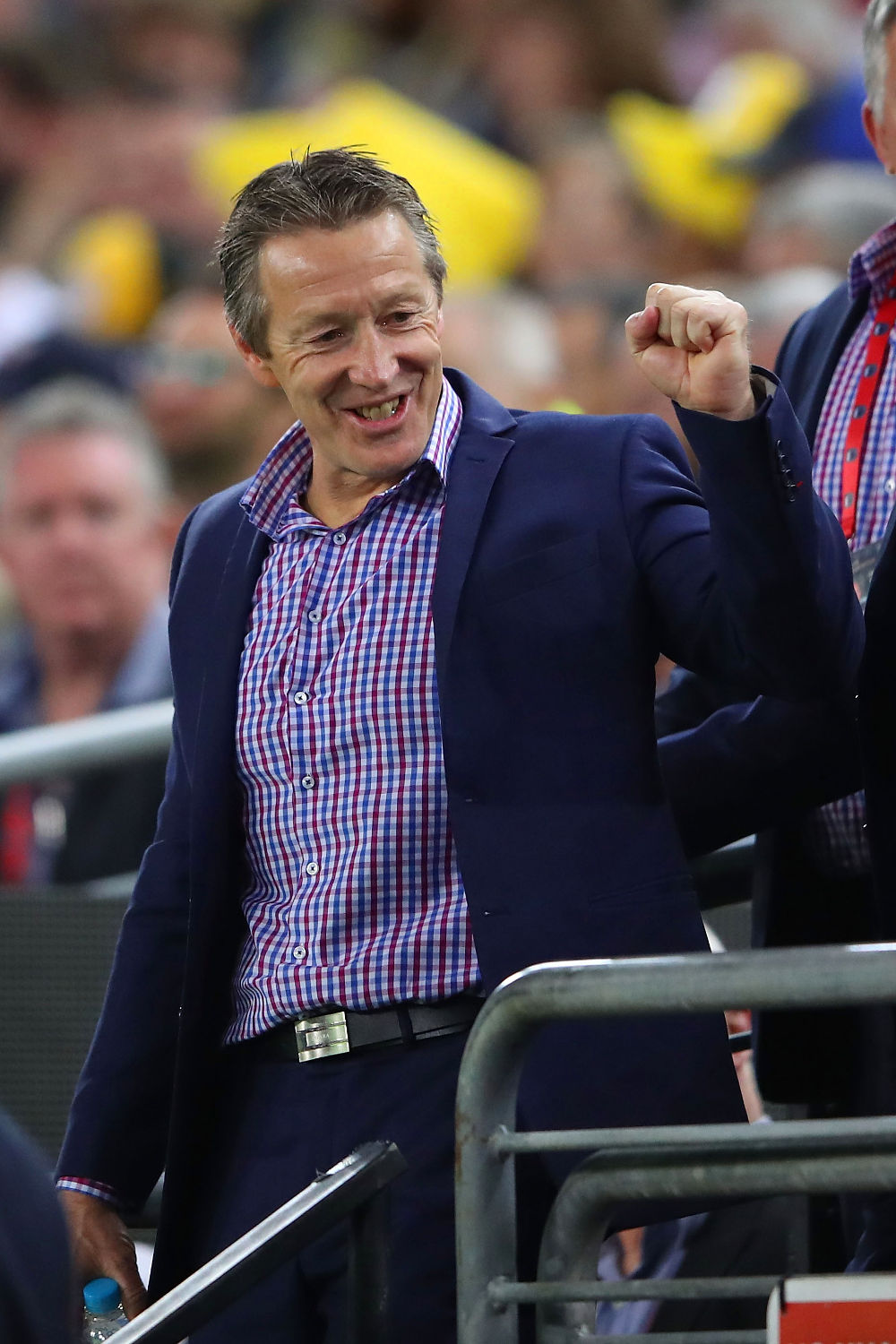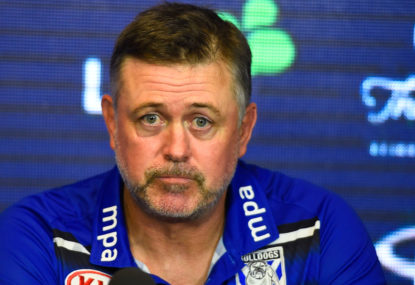As an NRL coach, you’re only as good as your reputation. When you agree to mentor a side, you’re staking that reputation on the performance of your team.
If your side is successful, this reflects well on you as a coach. But if your team isn’t winning, you’ll be the first person to cop the blame.
For young coaches about to sign their first contract, long-term reputation is probably the last thing on their mind. But it shouldn’t be.
The brutal reality is that a new coach is usually granted three years to build a winning program. If they can’t get the job done in that timeframe, the club will find somebody else who can.
Once a coach has been branded a failure, it can be tough to convince another club to give them second chance. With their reputation on the line, it’s important for first-time coaches to think long and hard before committing to a particular club. Prospective coaches owe it to themselves to make sure the job they’re applying for is the right fit for them and their coaching style.
But the competition for those 16 spots is more ferocious than Jack Bird at a vegetarian restaurant, with an ever-growing list of accomplished assistants just itching for a chance – not to mention a host of re-tread coaches desperate to find a way back in.

One of the aforementioned re-treads. (AAP Image/Paul Miller)
With so few spots and so many contenders, it’s unsurprising that aspiring clipboard carriers jump at the chance to coach an NRL side when the opportunity presents itself. Taking the reins is the opportunity of a lifetime, and one that most fear may never come along again.
But jumping in with both feet without first testing the waters has never been more dangerous for a rugby league coach.
Spare a thought for Dean Pay. The former Canterbury and Parramatta enforcer has long been touted as a head coach in waiting. After serving a lengthy apprenticeship and undergoing the necessary genetic testing, Pay was deemed to have the requisite Bulldog DNA needed to help the club recover from an epic Des-aster.
After a rapid-fire recruitment process, the Bulldogs offered him the job and Pay accepted. And who could blame him? Thanks to a river of poker machine gold flowing through their leagues club, the Dogs boasted financial security and football facilities that few others could match.
And their roster wasn’t too shabby either. Despite claims to the contrary, Des Hasler had assembled one of the better forward packs in the competition and signed a premiership-winning halfback in Kieran Foran – the sort of foundations any coach would be happy to inherit.
But as Paul Kent recently reported, all is not what it seems at Belmore.
Thanks to a host of back-ended contracts signed off by the previous regime, Canterbury’s salary cap is in dire straits. The club has 14 players coming off contract this season and less than $1 million available to re-sign them. Unless they shed players, the Bulldogs face the real possibility of being unable to re-enter the player market until 2020.
If that wasn’t bad enough, their 2018 season is already circling the drain. They are sporting a 2-7 record and their chances of qualifying for the finals look remote.
And, just to add insult to injury, the team’s attack, which cost Hasler his job, has actually regressed under their new coach.
It feels like only yesterday that the Bulldogs’ board were hailing the dawn of a new era at the Family Club. In the blink of an eye, this Canterbury Tale has taken a turn for the worse. Just six months into his NRL coaching career, Pay faces the possibility that his tenure at the Bulldogs could do permanent damage to his reputation.
[latest_videos_strip category=”rugby-league” name=”League”]
And he’s not alone.
Over on the Northern Beaches, Trent Barrett continues to suffer for the sins of others. Despite not being involved in player contract negotiations, the Manly mentor has been repeatedly forced to front the media and defend his team in the wake of the Sea Eagles’ salary cap scandal.
Much like Canterbury, Manly are reported to have minimal space to sign anyone new or extend the contracts of existing players. Adding in the sanctions stemming from their breach notice, the Sea Eagles’ misery is set to extend into 2019 and beyond.
In the interests of preserving his reputation, Barrett has reportedly been told to quit his current job so he doesn’t jeopardise his chances of securing a new one. Only in rugby league.
A quick check of the history books reveals that this advice perhaps isn’t as daft as it seems. The rugby league scrapheap is littered with one-and-done coaches who, in hindsight, might have waited for a more suitable opportunity rather than accepting the first offer that came their way.
Mick Potter walked into a Robbie Farah-fuelled firestorm at the Wests Tigers. Thanks to a toxic locker-room culture and a disgruntled senior playing group, the former Dally M medallist managed only 17 wins over two seasons (35%) at the joint venture, and was quickly dispatched in favour of (gulp) Jason Taylor. Potter hasn’t been seen running the show on a sideline since.

AAP Image/Action Photographics, Robb Cox
It was a similar story for Stuart Raper. He took over the Sharks in 2004, struggled through three miserable seasons, and was unceremoniously sacked. He hasn’t coached again at the top level.
And remember old Shaun ‘Bomber’ McRae? No? I don’t blame you. He presided over two seasons at South Sydney, won only 25 per cent of those games, and was promptly punted to the UK Super League.
Not all first-time coaches experience such growing pains. Trent Robinson and Paul Green hit the ground running when they took over as coach of the Roosters and Cowboys. Both men delivered a premiership within three years at their respective clubs, and are now regarded as two of the game’s better mentors.
Are they simply better coaches? Not necessarily. There can be no doubt that both Robinson and Green are good at what they do, but when they took over, both the Chooks and Cows boasted a strong roster, a stable and supportive board, and capable minds managing the salary cap.
So what’s the moral of this story? If I had to sum it up in a Golden Book, it would be that all good things come to those who wait. Don’t simply jump at the first opportunity because you fear it might be your last. As with any job, make sure the position you accept is the right one for you.
Just look at Craig Bellamy. Before the Storm super-coach built his empire in Melbourne, he was offered the first-grade job at the Wests Tigers prior to the 2003 season. At that point, Melbourne were still coached by Mark Murray, and Bellamy was an assistant at the Brisbane Broncos.
But the position at the Tigers never felt quite right to Bellamy. Public support from the playing group for Paul Langmack to get the job influenced Bellamy’s decision, and he eventually rejected the offer. A few months later he signed on as coach of the Storm, and the rest is history.

Photo by Cameron Spencer/Getty Images
And how about Kevin Walters? The current Queensland coach has made no secret of his hunger to coach at NRL level.
With his strong Maroon pedigree, I have no doubt that he would have been the strongest applicant to fill the vacant Gold Coast Titans job over the summer. But early on in the process, Walters acknowledged that the fit wasn’t right for him, and took his name out of contention.
He covets the Brisbane Broncos job, and he’s willing to wait for it.
So to all you young coaches out there, my advice – for what it’s worth – is to be patient. Before signing on the dotted line, be confident that your potential employer is putting you in the best position to succeed. Find out about the state of the salary cap, ask about the intricacies of player contracts, do due diligence on the financial health of the club.
And if it doesn’t feel right, then it probably isn’t.
At the end of the day, it’s your reputation on the line. And as an NRL coach, you’re only as good as your reputation.
































































































